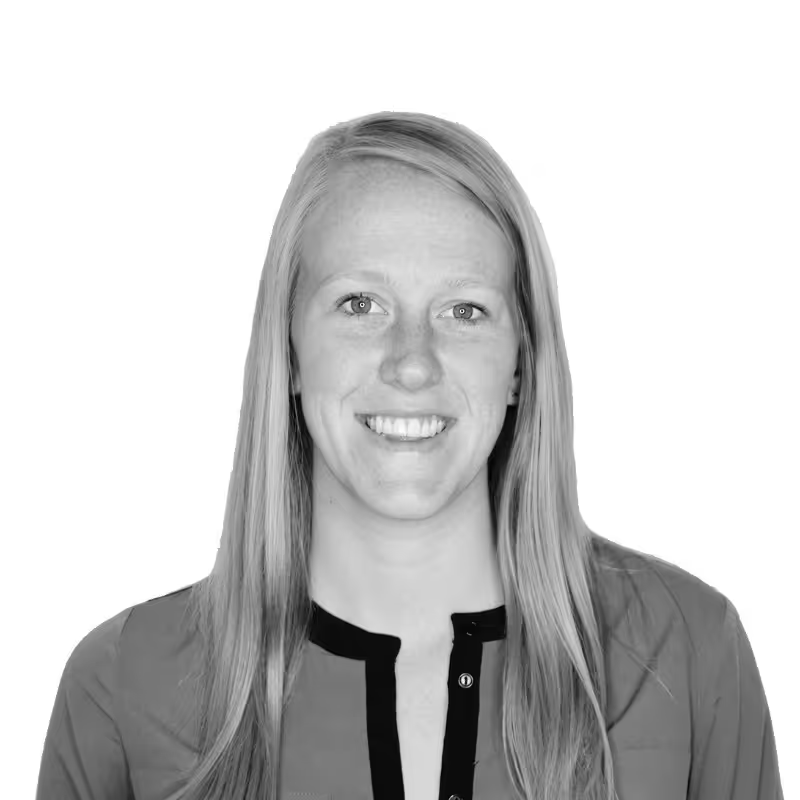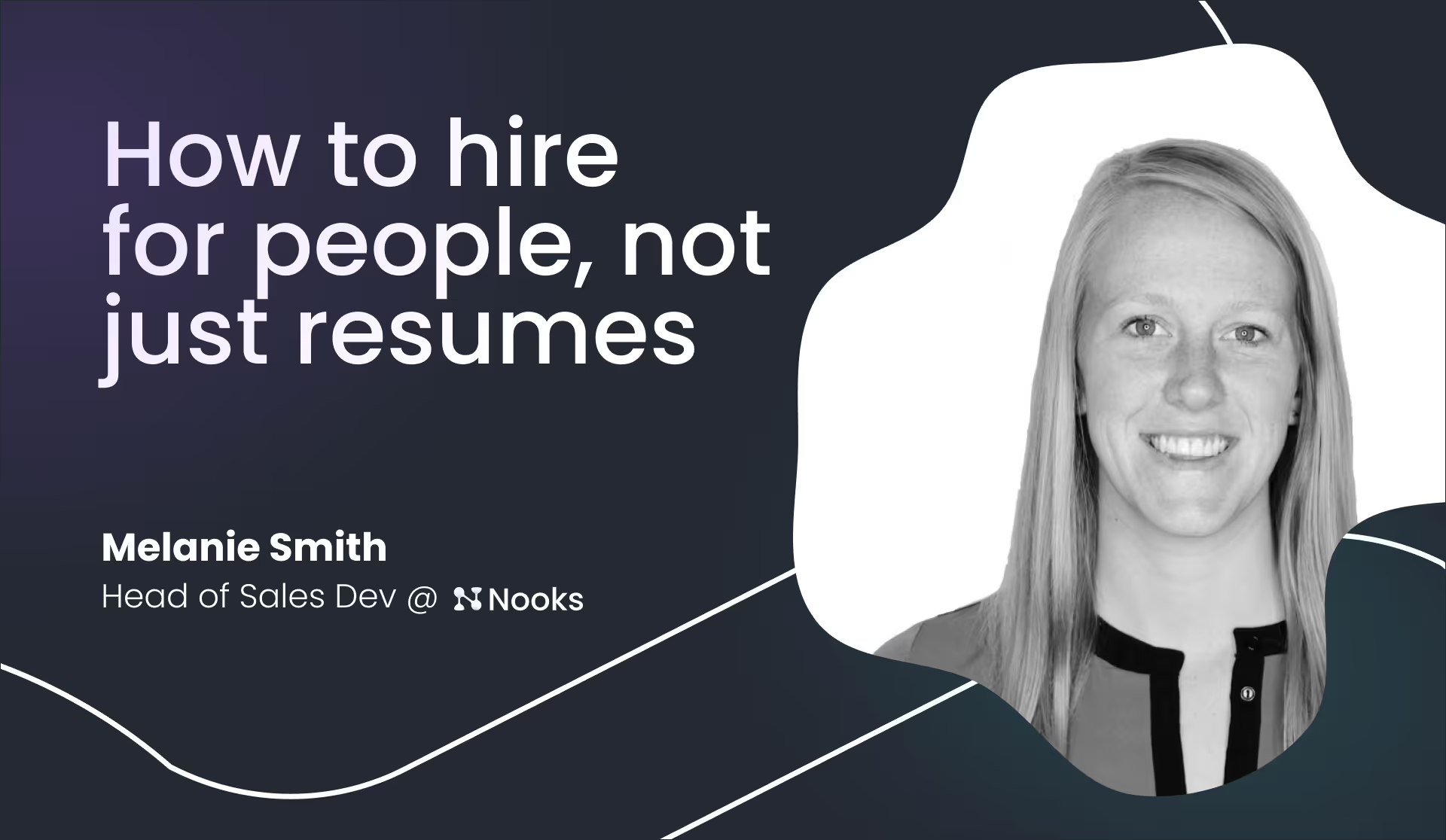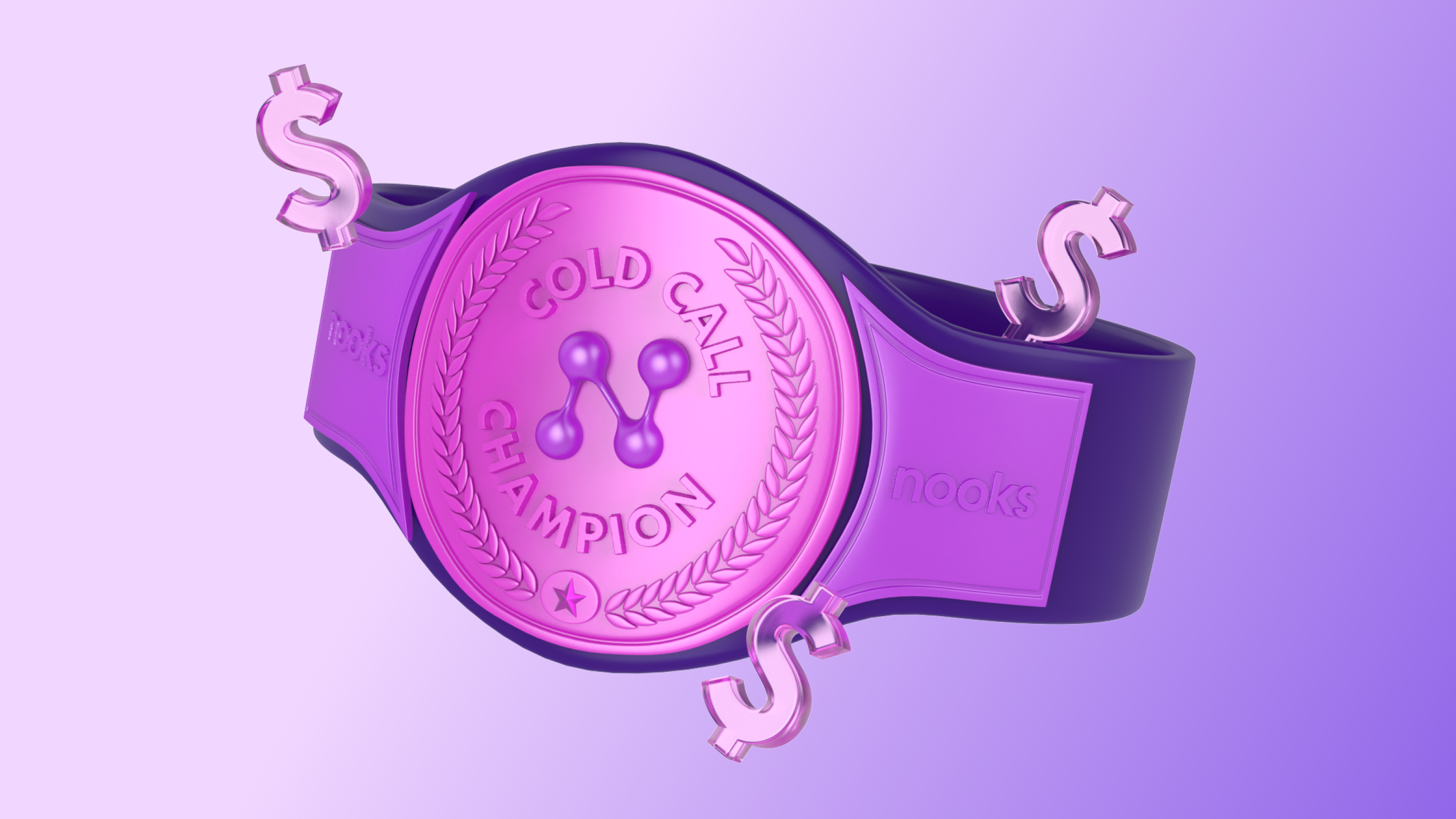How to Hire for PEOPLE, Not Just Resumes


How to Hire for PEOPLE, Not Just Resumes
Having gone through hiring almost 100 SDRs in my time, many of them coming with zero days of experience (like really - some teachers, zamboni drivers, servers, fresh grads, the list goes on), I had to get really good at identifying PEOPLE I think could be successful in the role and couldn’t rely on a resume of similar experience. Am I ever grateful for that learning now that I’m looking for senior reps as well.
Here’s the top 5 characteristics I typically look for, how I uncover them in interviews and why I think they’re important. By no means does this need to be an exhaustive list, and by no means is it the only perfect recipe, but it's worked pretty well for me in finding top talent.
- Resilience
Question: Tell me about the hardest thing you’ve ever gone through or accomplished in your life?
I leave this open ended on purpose and always add in a “only what you’re comfortable sharing”. This is the most important and useful question in the entire interview and if I could only ask one, it’d be this one. I’m looking to understand if they’ve had to go through anything difficult - that tested their patience, forced them to dig deep or pull themselves out of a potential hole. It can be a physical or mental struggle they came back from and can be anything from graduating school to going through a parental divorce.
Bonus - when someone is open to being vulnerable. Sharing something personal or deep to them. I often see a correlation between those who are comfortable being vulnerable and their coachability/ability to seek and accept feedback. I don’t judge them if they don’t go with something personal, it's not a must that everyones comfortable with but I get a way better sense of connection to this person when they do.
- A clear ‘Why’
Question: Why sales? (seems boring, I know)
The more important follow up, I dig at least twice: One layer deeper - what sets your belly on fire in the morning (asked with passion please), or what’s going to push you to not quit if you hit a month of 0’s on the board?
The most common answer I get (which transparently, I’m not a fan of), is when someone tells me they “enjoy talking to people”, or someone else told them they would be good in sales. That's an okay starting point, but it doesn’t tell me YOUR personal why. This is different angle at getting into someone's true motivation to choose a rather difficult career journey. I also open it up with some examples to help with the thinking but then ensure they give context if they use one - most common helpful prompts:
- Prove something to yourself/friends/parents
- Money - always let them know it's okay to be motivated by money, it's no longer a “faux pas”
- Provide for my family
- Master a skill set to run a business long term
Ultimately I’m trying to uncover whether I think they truly know what reason they’ll look for, when they might be put in a position to quit and change direction, or push through towards a longer term goal or purpose.
- Coachability
Question: What's the last piece of critical feedback you got? Did you agree or disagree and what did you do with the feedback?
More importantly, practice: Mock call feedback session.
This is either a cold call or intro/discovery call depending on the role/org and I have everyone do this whether they’re new to sales or experienced. It’s not about perfectly pitching a new product/ or value prop, it's about the prep they did, general communication skills, energy and most importantly, how they take feedback after the call.
I usually have one team member (SDR) join us for this part of the call. After the candidate completes this call, we ask if they’d be open to round table feedback where we each (myself and SDR from my team) share one piece of positive feedback and one piece of opportunity for improvement. We also ask the candidate for a quick self eval of how they think they did to kick it off.
Their ability to identify and celebrate their own wins is just as important as them identifying their own areas of opportunity for improvement.
Once they’ve done the above, we jump into a quick round table feedback. Here's what I’m listening/watching for in their response to the feedback:
- Do they ask clarifying questions about the feedback
- Do they respond with “I thought of that too” to every piece of feedback
- Do they counter/disagree with the feedback (yes I’ve seen this done many times)
- Are they taking notes of the feedback
- Do they thank you for the feedback
This is also a great place to see their natural curiosity shine through (hopefully).
- Organization
Question: How do you keep yourself organized in your personal or school life (depending what stage they’re at in life).
This is simple and overlooked in a lot of screening for this role. The number one reason I’ve seen SDRs fail in the role (especially if it's their first go at it), is a lack of somewhat natural organization. There's a million and one things to do in the SDR role, and although we teach you what being organized in our world can mean, if you’re not someone who naturally feels the need to be organized, you’re likely not going to be able to get through everything you need to in a day or a week.
Are they a list person, calendar person, etc? The answer doesn’t matter as long as they have some answer - people that pay attention to organization know how they best do it top of mind. Your ability to organize and then prioritize your days/weeks are crucial for success.
- Adaptability / Self Learning
Question: Tell me about a time where you were given goals or guidelines, and part way through a project those goals or guidelines shifted drastically. Tell me about the situation, how did you react/feel and how did you handle it?
This could be school, work or personal. This is also especially important if you're building a team in a smaller/startup company but stays important in any growing business. Markets change, business needs change, leadership and teams change and we need people that won’t be thrown off their rocker anytime that happens. We’re hoping to understand how they react and adapt to changing situations that may impact them or their surroundings in the role.
Question: What's the last thing you taught yourself? How did you do it and how’s it going?
Deeply connected to how you react and what you do when things might change - how do you actually “figure shit out” on your own. Are you someone who needs an instruction manual, or someone who can jump in with 50% of the information and go figure out what to do. This could be learning new concepts, thought processes, technology, or anything that might be new in the role. As a leader, you should have a great onboarding program and experience for new hires for your own team/goals sake, but it shouldn't require hand holding the whole way.
As always, there's so many characteristics, skill sets, attributes and questions you can dive into an interview. Over hundreds of interviews, these are the ones that have always been the core foundation to what I’m trying to learn about a candidate. You can teach folks how to cold call, write an email and build an account list, but it's incredibly more challenging to teach folks the above characteristics if they don’t have some of them innately within them. If you hire people for the characteristics or attributes they possess and not just what's on their resume (LinkedIn these days, let's be real), you’ll have a much higher chance of them being successful and continuing to build their career and sales.
At the end of the day, that's the real motivation for being a great leader right? To help or give others a chance to build kickass careers in sales, whether new or experienced.
Full Hiring Process for Senior Reps:
- 20 minute meet n greet with manager
- Align on high level qualifications, comp, process, career growth expectations
- Take home written assignment:
- 6 emails, 2 personas
- Looking for personalization + research, general written comm skills
- 1 Hour Mgr Interview + Cold Call
First 30 mins includes an SDR from my team
- Mock cold call
- Round table feedback
- 15 min Q&A w SDR from my team
Next 30 mins Manager Deeper Dive - characteristics/atrributes for 20 mins
10 mins any questions from them
- Problem Solving w Co-Founder
- 20 min call w VP Sales


.png)
.avif)

